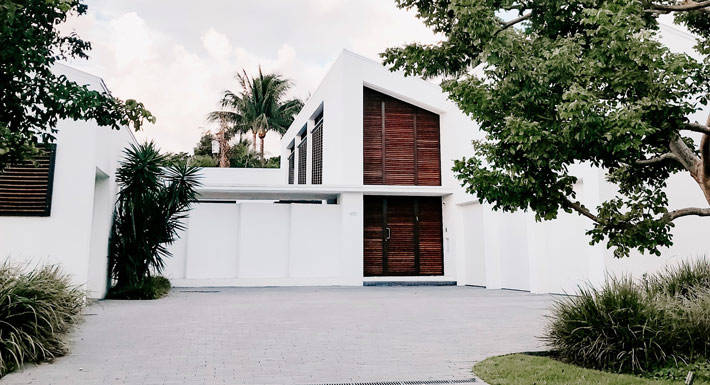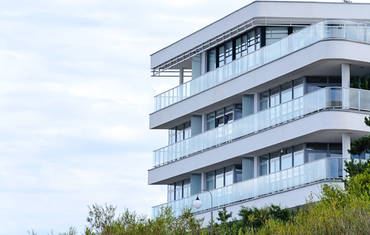Real Estate Advice
May 02, 2024
Real estate capital gain tax in France
Do you want to sell a property you bought a few years ago as a rental investment or for a second home? You will likely have to pay tax on the real estate capital gain. What does this form of taxation involve? Who is affected and how is it calculated? Follow the Winter Immobilier guide.

Real Estate Capital Gain Tax in France: A Comprehensive Guide
When do you have to pay real estate capital gains tax? Real estate capital gain refers to the profit a property owner can make when they resell a property for more than they purchased it. The difference between the purchase price and the resale price, the real estate capital gain is taxable. The amount of tax on the real estate capital gain must be paid by the seller on the day of the signing of the deed of sale of the concerned property. The notary directly collects the tax for the Treasury.
In practice, on the day of the sale, the seller receives the amount of the sale price of their property, from which the capital gain tax is deducted. The tax on real estate capital gains applies to properties sold for more than 15,000 euros, other than primary residences, held for less than 30 years.
How to Calculate Real Estate Capital Gain
The Basis for Calculating the Real Estate Capital Gain
The capital gain is calculated based on the difference between the acquisition price and the resale price of the property. These can be respectively increased and reduced by taking into account various costs (acquisition and sale fees, work, less value, etc.), which serves to reduce the amount of taxable capital gain. Reductions are also provided depending on the duration of ownership of the concerned property.
The Tax Rate on Real Estate Capital Gains
The tax applies to the amount of the capital gain after possible reductions, itself calculated by the difference between the increased purchase price of certain fees and the possibly reduced resale price. The capital gain is taxed both for social contributions and income tax. The total tax rate, at 36.20%, is composed of the flat rate of 19% for income tax and 17.2% for social contributions.
Depending on the amount of the capital gain after the reductions, an additional tax of 2 to 6% applies since 2013 when the property is not a building plot and the net capital gain exceeds 50,000 euros. The taxable capital gain is calculated by the notary at the time of resale. It is also he who deducts the tax from the sale price to pass it on to the public authorities. However, it is necessary for the seller to indicate the amount of the capital gain on their annual income tax return.
Deductions from Real Estate Capital Gain
The basis for calculating the real estate capital gain can be reduced by deducting certain costs from the resale price and, conversely, increasing the acquisition price.
Reduction of the Sale Price
With the presentation of receipts, it is possible to deduct from the sale price on which the capital gain is calculated the expenses paid at the time of sale. Thus, costs related to various mandatory diagnostics can be deducted: energy performance certificate, asbestos report, lead report, termite and other wood-eating insects reports, natural, mining, and technological risk diagnostics, electrical and gas diagnostics if applicable.
Increase of the Acquisition Price
The acquisition price is increased by notary fees and registration rights. In the absence of receipts, they are estimated at 7.5% of the purchase amount. Expenses for work (construction, renovation, extension) can also increase the acquisition price. They are calculated at actual costs or taken into account on a lump sum basis. Only works carried out by a company with an invoice subject to VAT are deductible from the capital gain.
Exemption from Capital Gains
The length of possession of the property impacts the amount from which the capital gains tax is calculated. Indeed, a different abatement rate is set according to the number of years the property is held. No reduction is provided for a holding period of 6 years or less. Then, a reduction of 6% for income tax calculations and 1.65% for social contributions calculations is applied from the 6th to the 21st year of possession. From the 22nd year onwards, the reduction increases to 4% for income tax and 1.6% for social contributions. Beyond 23 years, there is an exemption for income tax calculations, and a reduction rate of 9% for social contributions. Total exemption (taxes + social contributions) occurs beyond the 30th year of possession of the property.
Contact Winter Immobilier for Real Estate Sales in Nice
Do you want more advice on real estate sales and particularly to know the trends of the Nice market? Do not hesitate to visit our real estate agency in Nice Gambetta or to directly contact one of our advisors by phone!






